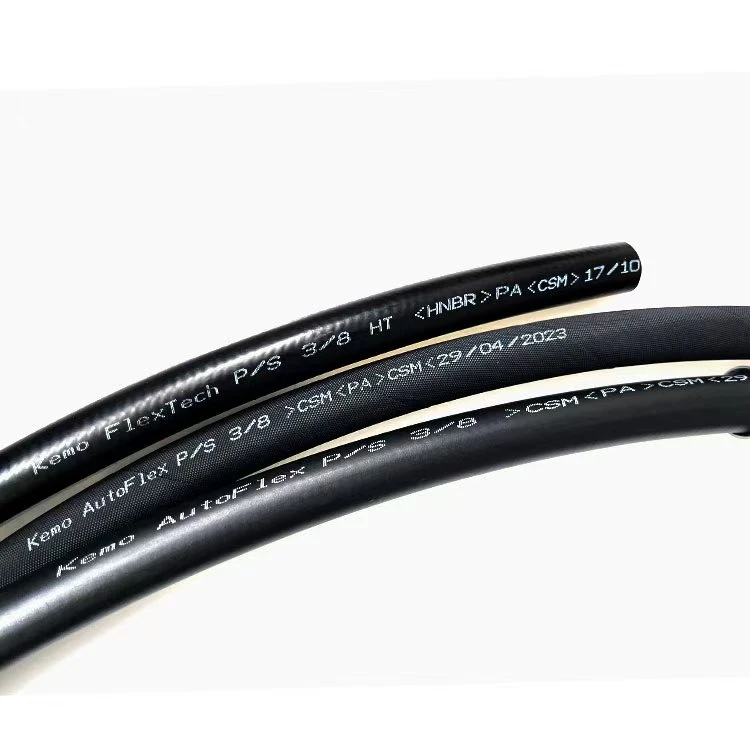diesel rated fuel line
Oct . 10, 2024 07:43 Back to list
diesel rated fuel line
Understanding Diesel Rated Fuel Lines Importance and Applications
In the realm of diesel engines, the efficient and reliable delivery of fuel is crucial for optimal performance and longevity. One of the key components facilitating this process is the diesel rated fuel line. These specialized fuel lines are designed to withstand the unique pressures and conditions associated with diesel fuel and are vital for various applications, including automotive, industrial, and agricultural machinery.
What are Diesel Rated Fuel Lines?
Diesel rated fuel lines are hoses or tubes specifically engineered to carry diesel fuel from the tank to the engine. Unlike standard fuel lines, which may be suitable for gasoline, these lines are constructed from materials that can handle the chemical properties of diesel. They are designed to resist cracking, abrasion, and the effects of prolonged exposure to fuel, ensuring a safe and efficient fuel transfer.
The construction of diesel rated fuel lines often involves reinforced rubber, thermoplastic elastomers, or composites. These materials help the lines maintain structural integrity under the high pressures that can occur in diesel fuel systems. Additionally, they are usually equipped to handle the presence of additives in diesel, such as biodiesel, which can degrade inferior materials.
Importance of Using Diesel Rated Fuel Lines
1. Safety Diesel fuel is less volatile than gasoline, but it still poses safety hazards, especially regarding leaks which can lead to fires or environmental contamination. Using rated fuel lines specifically designed for diesel mitigates the risk of leaks and ruptures.
2. Performance Diesel engines are designed for high torque and efficiency. Optimal fuel delivery is critical to achieving peak performance. Diesel rated fuel lines ensure that fuel flows smoothly without restrictions, allowing the engine to operate efficiently.
3. Durability Diesel rated fuel lines are built to last. The harsh operating conditions, including extreme temperatures and pressures, demand components that can endure wear and tear. Choosing the right fuel line can significantly extend the life of fuel delivery systems in diesel engines.
4. Compliance with Regulations In many jurisdictions, there are laws and regulations regarding the materials and construction methods used for fuel systems. Diesel rated fuel lines comply with these standards, ensuring that equipment is both safe and legal to operate.
Applications of Diesel Rated Fuel Lines
Diesel rated fuel lines are versatile and can be found in various applications across multiple industries
diesel rated fuel line

- Automotive Modern diesel vehicles, including trucks and cars, utilize high-quality fuel lines to ensure smooth operation. These lines are crucial for high-pressure common rail fuel injection systems, which are designed to maximize efficiency and performance.
- Agriculture Tractors and other agricultural machinery often rely on diesel fuel for power. Durable fuel lines are essential for these machines to operate under demanding conditions, including varying environmental factors.
- Construction Heavy equipment such as excavators, bulldozers, and generators operates on diesel. The reliability of fuel lines in such equipment is crucial, as downtime due to fuel line failures can lead to significant losses in productivity.
- Marine Diesel engines are commonly used in boats and ships. Diesel rated fuel lines in a marine environment must not only handle the fuel efficiently but also resist corrosion from saltwater exposure.
Maintenance Tips for Diesel Rated Fuel Lines
To ensure longevity and reliability, regular maintenance of diesel rated fuel lines is crucial. Here are some tips
1. Inspection Regularly inspect fuel lines for signs of wear, cracks, or leaks. Early detection of issues can prevent catastrophic failures.
2. Cleaning Keep fuel lines clean and free from debris to ensure optimal fuel flow. Contaminants can harm the fuel system and engine.
3. Replacement Follow manufacturer guidelines regarding the lifespan of fuel lines. If they show significant wear or if performance issues arise, consider replacing them to maintain system integrity.
4. Proper Installation Ensure that fuel lines are installed correctly to avoid stress on the connections, which can lead to leaks or failures.
Conclusion
Diesel rated fuel lines play an essential role in the efficient operation of diesel engines across various sectors. Their specialized design ensures that they can handle the specific demands of diesel fuel systems, helping to enhance performance, safety, and durability. With proper maintenance and regular inspections, these components can provide reliable service for many years, making them a critical investment for anyone reliant on diesel-powered machinery.
